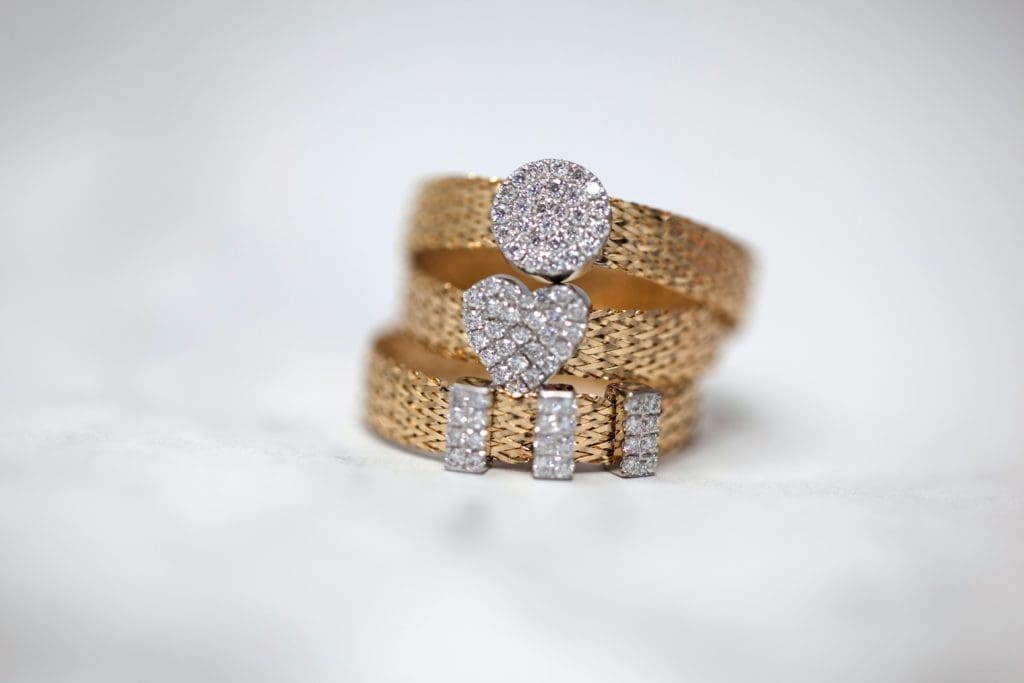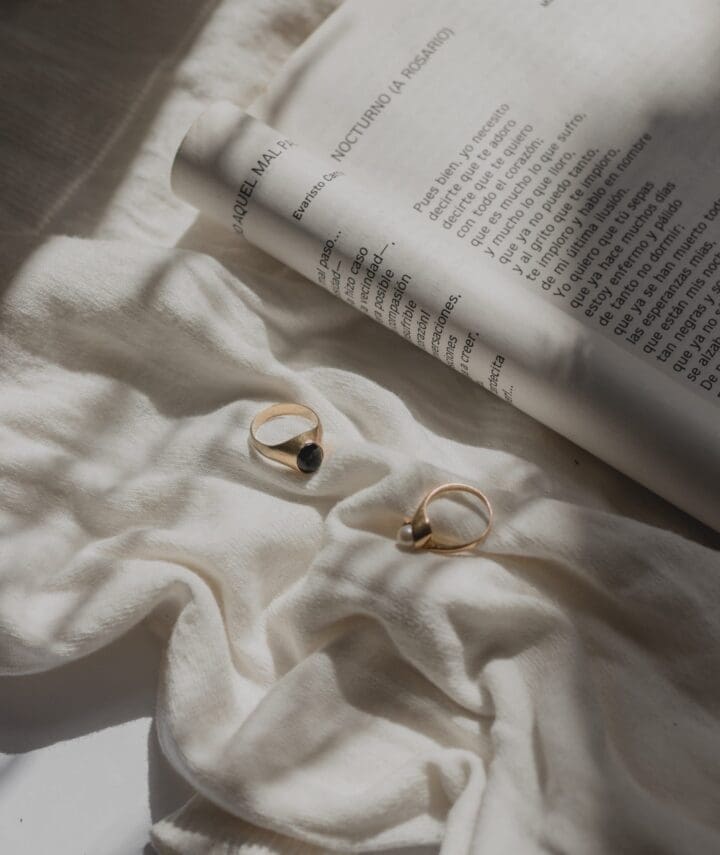Look for hypoallergenic materials
Hypoallergenic materials in jewelry are becoming increasingly popular due to the rising awareness of skin sensitivities and allergies. These materials are designed to reduce the risk of allergic reactions, especially for those with sensitive skin. The most common hypoallergenic materials used in jewelry include surgical stainless steel, titanium, niobium, and gold that is 14k or higher. These materials are less likely to cause irritation or allergic reactions because they are free of common allergens such as nickel, lead, and other harmful substances.
Hypoallergenic jewelry is a great choice for people who have experienced skin irritation or allergic reactions in the past, as it provides a safer and more comfortable option for everyday wear.

Mixed metals can be a hit or a miss when it comes to skin sensitivities.
Avoid certain types of metal alloys
One of the most common metals that can cause allergic reactions is nickel, which is often used in jewelry as a cheap filler metal. Other metals like copper, brass, and bronze can also cause skin irritation and discoloration. It is essential to choose jewelry made from high-quality metals such as 14k or 18k gold, platinum, or palladium. If you are unsure about the metal composition of a piece of jewelry, it is best to avoid it or do a patch test on your skin before wearing it. Additionally, be cautious of jewelry that is gold or silver-plated, as the underlying metal may contain allergens.
Ultimately, being mindful of the metal composition of your jewelry can help prevent discomfort and allergic reactions.
Choose earrings with solid backs
Using solid metal earring backs in jewelry is an excellent way to ensure the security and comfort of your earrings. These types of earring backs are often made from materials like surgical stainless steel, titanium, or gold, which are hypoallergenic and less likely to cause irritation or allergic reactions.
Solid metal earring backs are particularly beneficial for people who are active or engage in sports as they are less likely to slip off or get lost during physical activities. They are also ideal for heavy earrings as they provide extra support and prevent drooping. Overall, using solid metal earring backs is a smart choice for anyone looking for a reliable and comfortable earring backing option.
Consider alternative materials
Metal alternatives are great a option for people who experience skin irritation or allergic reactions to traditional metals. Metal alternatives such as nylon, silicone, or rubber are hypoallergenic and are less likely to cause skin irritation or allergic reactions. These materials are often used in jewelry for sports or other physical activities as they are flexible, durable, and comfortable to wear. They can also be used in everyday jewelry as a substitute for metal components such as clasps or earring hooks.
Additionally, metal alternatives can be combined with other materials such as beads, crystals, or gemstones to create unique and stylish designs. Overall, using metal alternatives in skin-sensitive jewelry is an excellent choice for those who want to enjoy the beauty and functionality of jewelry without the discomfort and risk of allergic reactions.
Test the jewelry before wearing it
Testing jewelry for skin sensitivities before buying it is crucial for anyone who has experienced skin irritation or allergic reactions to certain metals or materials. A simple patch test can be performed by placing a small amount of the jewelry on the inside of your wrist or behind your ear. Taking the time to test jewelry for skin sensitivities before buying it can help prevent discomfort and allergic reactions and ensure that you can enjoy your jewelry safely and comfortably.
Clean your jewelry regularly
Cleaning your jewelry regularly is essential to keep it looking its best and to maintain its quality over time. Dirt, oil, and other contaminants can build up on jewelry, which can cause discoloration, dullness, or even damage to the piece. Regular cleaning can help remove these contaminants and restore the jewelry’s shine and luster. Properly cleaning and caring for your jewelry can also help reduce the risk of irritation.
Remember, everyone is different and what works for one person may not work for another. It may take some trial and error to find the best jewelry for your sensitive ears. Feel free to check out our collection of sensitivity friendly, water-proof jewelry for your next outfit.





